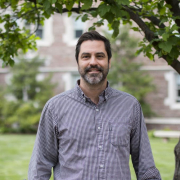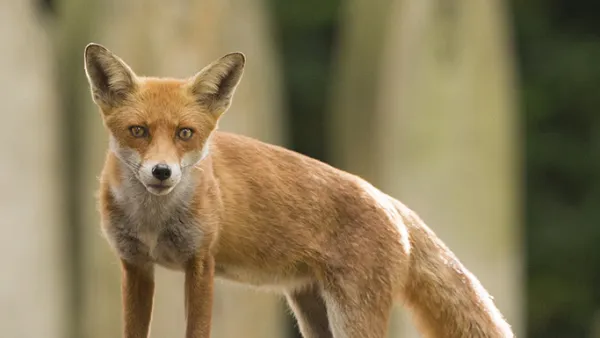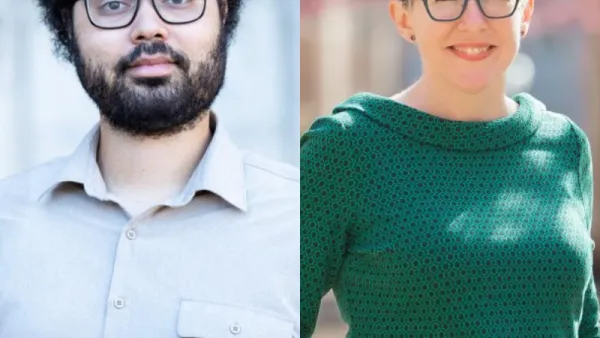A scholar with a long history of transdisciplinary work, Frachetti will work with Incubator co-founder William Acree to define the initiative's next chapter.

Michael Frachetti has joined the Incubator for Transdisciplinary Futures (ITF) as its new co-director.
Frachetti, who joined the WashU faculty in 2005, is a professor of archaeology and principal investigator of the Spatial Analysis, Interpretation, and Exploration Lab. He will serve as ITF co-director alongside initiative co-founder William Acree.
Launched in 2022 as a signature initiative of the Arts & Sciences Strategic Plan, ITF provided initial funding for more than a dozen transdisciplinary collaborations between WashU faculty. Its supported projects have since gone on to secure significant external funding, contribute to notable academic journals, and create new learning opportunities at WashU.
“I am very excited to help carry the banner of transdisciplinarity forward into the next phase of ITF because of its potential to increasingly drive ideas, research, and pedagogy through campus-wide inclusion, convergence, and innovation,” Frachetti said. “This is a truly pivotal time for our faculty to develop and change how we approach the world’s greatest questions and challenges. ITF can help spearhead that change.”
Frachetti’s research focuses on nomadic societies living in Eurasia during the Bronze Age. His collaborative projects have included drone-based surveys of ancient trade cities in Uzbekistan, a Department of Defense-funded study of societal resilience in the Asia-Pacific region, as well as MOBOGEN, an in-depth study of human migration supported by a TRIADS seed grant.
“In so many ways, Michael is an ideal partner to work with as ITF continues to expand its impact across the university,” Acree said. “As a scholar, his research is an outstanding example of cross-disciplinary collaboration. Michael has extensive experience leading teams and knows the challenges of team science. He is also a creative and energetic colleague who can inspire others.”
Acree was named the inaugural vice dean of interdisciplinary initiatives and innovation in Fall 2024, signaling a renewed emphasis on supporting collaborations across different fields in Arts & Sciences. Fellow ITF co-founder Betsy Sinclair has also taken on a new role as assistant vice provost of digital transformation, necessitating a change in ITF leadership.
“It has been a real pleasure working with Betsy in the ideation and implementation of the Incubator infrastructure,” Acree said. “Betsy and I became not just good friends over these past years, but collaborators on multiple research projects, too.”
With most of the Incubator’s current collaborations winding down by the end of 2025, Acree and Frachetti will collaborate to define ITF’s next chapter.
“The future of the Incubator is full of promise,” Acree said. “Two years ago, we set out to design a structure for startup academia that would support wild collaborations. The success of those collaborations, in terms of securing external support and promoting a new kind of collaborative culture across the university, has far exceeded what we thought was possible. We are looking forward to building on that momentum as we consider the next phase of how ITF can support innovation in faculty research and student learning.”


